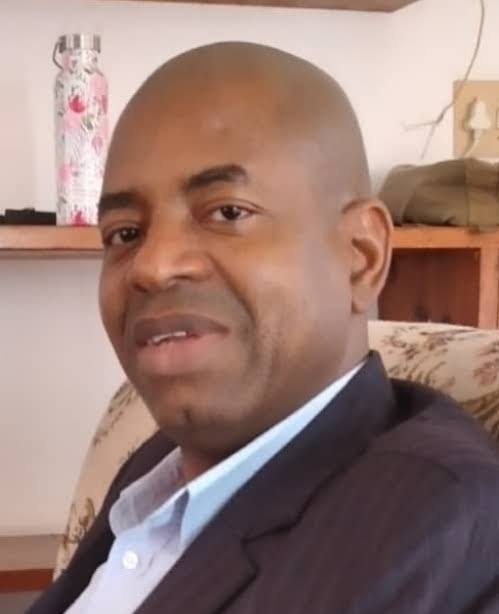By Dr. Vincent Asogwa
Currently, there is a rising worry about the frequency of inappropriate behavior among lecturers in Nigerian universities.
This matter has received considerable attention due to its broad range, thus requiring immediate intervention in order to gain a comprehensive understanding of the underlying factors that promote such behaviour.
Lecturers’ misconducts holds great significance, as it negatively portrays the overall quality of the educational system in the country.
The most recent of lecturers’ misconducts was at Nnamdi Azikiwe University, Awka, Anambra State, where no fewer than 14 academic and non-academic staff and other categories of employees, including students were suspended for various misconducts and offences.
Before now, lecturers in Nigerian universities were highly respected in society to the extent that they were not searched in the embassies of the countries while travelling. At present, the trust and integrity of the lecturers are rapidly declining, like that of the Nigerian Police Force, where the atrocities and misconduct of many have enveloped the entire system, including a few good ones.
Lecturers’ misconduct encompasses any behaviours that contravene the ethical norms of their academic institution or profession, such as but not limited to fabrication of data, plagiarism, sexual harassment, abuse of power, bribery, favouritism, absenteeism, and discrimination based on protected characteristics.
These behaviours not only breach professional ethics but also undermine the credibility of the education system. The behaviours originate from various intertwined factors and have serious implications for the lecturer, the students, the institution, and the academic community.
Lecturers who are involved in misconduct may encounter disciplinary measures such as suspension, termination, loss of reputation, legal consequences, or revocation of their teaching qualifications.
The primary victims, who are the students, endure compromised learning experiences, reduced academic performance, emotional distress, and a decline in trust. For example, individuals who experience sexual harassment often face psychological trauma, a decrease in self-worth, and diminished academic performance. The preferential treatment towards certain students can instill a feeling of inequity and demoralization, among other negative effects. Plagiarism committed by educators undermines the cultivation of critical thinking abilities and intellectual honesty within the student body. Besides, the deterioration of trust between students and educators impedes the learning environment and discourages open dialogue.
Furthermore, such misconduct has a negative impact on the standing of Nigerian universities and the nation’s educational system as a whole. Institutions that tolerate or cover up lecturers’ misconduct damage their credibility, reputation, and quality of education. Lecturers’ misconduct compromises the quality and trustworthiness of educational institutions, leading to a loss of public confidence.
The stardom of Nigerian universities suffers, hindering international collaborations, attracting competent faculty, and securing funding opportunities.
Additionally, misconduct obstructs the pursuit of academic excellence, impedes research progress, and constrains the overall growth and development of the education sector. The academic community may also lose public trust, dependence, and support completely if lecturers’ misconduct is widespread or unaddressed.
Unfortunately, many authors often hastily associate the causes of such misconduct with economic hardship, undermining other factors to better understand the challenges and effects and work towards implementing effective strategies to address and prevent lecturers’ misconduct. To
unmask the truth about lecturers’ misconduct in Nigerian universities requires a comprehensive
understanding of the factors contributing to this issue.
By adopting an ecological systems theory
(EST) approach, we can recognise the interplay between individual, interpersonal, institutional, and societal factors. This approach emphasises the need for interventions at multiple levels, including individual-level ethics training, fostering positive interpersonal relationships, strengthening institutional policies and enforcement mechanisms, promoting a culture of ethics and integrity in society. It also enables us to develop targeted interventions that address the root, stem, and leaf causes of the misconduct. If you do not believe to be part of the problem, you cannot be part of the solution.
Individually, lecturers’ personal characteristics, attitudes, and values play the most significant role in their engagement in misconduct. Factors such as absence of professionalism, moral
disengagement, avarice, an absence of personal rectitude, and the pursuit of individual advancement all contribute to unscrupulous conduct. Moreover, circumstances such as job discontent, burnout, and a lack of responsibility may also foster misconduct behaviour.
Lecturers who find themselves in the vocation without any fervor for it are prone to partake in misconduct.
Identifying and addressing these individual-level factors is essential for preventing lecturers’
misconduct.
Interpersonal relationships within the university environment can also influence the occurrence of misconduct. Power dynamics, favouritism, and inappropriate relationships between lecturers and students can create an environment conducive to misconduct. Lack of effective communication,
limited mentoring and supervision, and inadequate feedback mechanisms can further exacerbate the problem. By fostering positive and respectful relationships, promoting transparency, and establishing clear boundaries, the likelihood of misconduct can be reduced.
Institutionally, several factors significantly contribute to lecturers’ misconduct in Nigerian universities.
Weak institutional governance, a lack of clear policies and procedures, and
inadequate enforcement mechanisms for reporting and managing misconduct create a conducive environment for a culture of impunity and unethical behaviour. Insufficient resources, poor
working conditions, and low salaries may also contribute to lecturers’ engagement in misconduct as a means of supplementing income, especially for the feeble-minded ones. Additionally, the
prevalence of corruption in society, tribalism, nepotism, societal cliques, perversion of justice, and lawlessness in universities may contribute to lecturers’ engagement in misconduct as a means of exerting power over students. By strengthening institutional structures, implementing robust policies, and ensuring accountability, the occurrence of misconduct can be curbed.
Societal factors, including cultural norms, societal values, and corruption, can indirectly influence lecturers’ misconduct. In a society where corruption is prevalent, like Nigeria, unethical behaviour may be perceived as acceptable or even expected. Societal pressure to prioritise personal gain over
professional integrity can contribute to misconduct. Addressing societal-level factors requires a broader approach, including promoting a culture of ethics and integrity in society, strengthening anti-corruption measures, and fostering a value system that prioritises education and academic integrity.
Summarily, the issue of lecturers’ misconduct in Nigerian universities is a significant concern, and understanding and unmasking its various forms, impact on students, and contributing factors can enable implementation of effective strategies. Therefore, it is essential to prioritise institutional reforms, promote ethical conduct, and create an environment that fosters trust, fairness, and academic excellence. First and foremost, there is a need for robust institutional policies and mechanisms to prevent, detect, and address misconduct. These policies should be accompanied by clear reporting channels, protection for whistleblowers, and swift disciplinary actions. Strengthening institutional governance and promoting transparency and accountability are also crucial to curbing misconduct. Investing in lecturers’ professional development and improving their working conditions is equally important. Adequate remuneration, training on ethical conduct, especially on recruitment, and support for research and career advancement can contribute to a positive work environment and reduce the likelihood of misconduct.
Self-discipline and selfcontrol are still the utmost requirements for lecturers against misconduct because you can determine your actions but not the consequences. William Feather said, “If we don’t discipline ourselves, the world will do it for us.” In addition, sensitising students about their rights, providing access to counselling services, and establishing student support systems can empower them to report and address misconduct effectively. By strengthening ethical standards, promoting transparency, and fostering a culture of integrity, Nigerian universities can create an environment that discourages misconduct and upholds the values of education and academic excellence. This will save lecturers from disciplinary actions like suspension, dismissal, loss of reputation, legal action, revocation of teaching licence, or suicide, thereby improving and sustaining the quality of the Nigerian education system. Only through collective efforts can Nigerian universities regain their integrity and provide a conducive learning environment for students amidst increasing cases of lecturers’ misconducts.
Dr. Asogwa is a lecturer at the Faculty of Education, Michael Okpara University of Agriculture, Umudike, and can be reached on 08034232630












